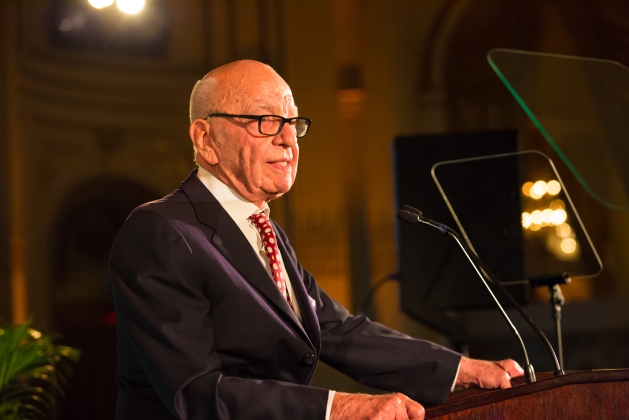In Amherst, student journalists have reported that three middle school counselors engaged in anti-transphobic behavior, leading to suspensions while school officials investigate. In Middleborough, a seventh-grader who was sent home from school for wearing anti-trans T-shirts is claiming that his First Amendments rights have been violated.
Fortunately, the struggle for transgender dignity and respect is playing out differently in Massachusetts than it is in places like Florida and other red states, where the very existence of trans folks is under attack. Still, transphobia is everywhere, and all of us are faced with the challenge of protecting the LGBTQ community in a way that acknowledges everyone’s right to be heard.
I want take a look at the situation in Amherst first because it was brought to light by an intrepid group of students at Amherst Regional High School — 16 of them, who helped report a 4,800-word story for The Graphic, a 109-year-old student publication produced by the school’s journalism classes.
According to their story, published on May 9, three middle school counselors have “routinely misgendered and deadnamed transgender students and staff, invoked anti-LGBTQ prayer at school, allowed religion to overflow into conversations with students and staff, and failed to provide support to students who were facing gender-based bullying or intimidation at school.”
The article is deeply reported and well-documented, although I should add that the three counselors, Hector Santos, Delinda Dykes and Tania Cabrera, have denied the allegations. Cabrera is Santos’ daughter and is a new hire, though her actions reportedly are in a similar vein.
Astonishingly, The Graphic also reports that students, parents and school staff members have expressed concerns to top administrators, yet no action was taken until after their story was published. On May 11, Scott Merzbach of The Daily Hampshire Gazette reported that three counselors have been placed on administrative leave pending an investigation. School Supt. Michael Morris declined to identify the three or to confirm if they were the trio named by The Graphic.
The Graphic’s story is filled with disturbing details, but I want to focus on one anecdote that I found particularly telling. A secretary identified pseudonymously as John said he was once invited to take part in a private prayer circle held on school property by Santos and Dykes. According to The Graphic:
At first, he didn’t see the harm. He said he identifies as both a Christian and an LGBTQ supporter.
“I was exploring my spiritual side at that time,” he said, noting that the circle did not involve students or teachers. “I thought we were just going to pray for strength to get us through the day. Who doesn’t need that?” But things shifted quickly. He alleges that after some introductory prayers, Dykes changed lanes, saying, “‘In the name of Jesus, we bind that LGBTQ gay demon that wants to confuse our children.”
John said he felt an immediate “tightness in my chest. I looked to the door, wanting to run.” He left shortly afterward, told a trusted colleague he felt they “were crazy to be saying that,” never joined their prayer circle again, and tried to avoid the two at work, making polite talk but keeping his distance.
According to the article, John reported the incident to Marta Guevara, the school’s director of student and family engagement, who in turn reported it to Supt. Morris — one of several disturbing incidents she brought to Morris’ attention. Yet there is no evidence that Morris did anything about it before he announced last week’s suspensions.
I also want to highlight The Graphic’s explanation of the care that it took in reporting the story, which appears at the bottom of the article:
All sources who are referred to by a first-name-only pseudonym wished to remain anonymous. Parents and children sought anonymity on the basis of privacy and an ongoing legal investigation. Some staff members sought anonymity due to fear of retaliation. Some staff members who are named did not speak to The Graphic but were copied on email correspondences that were shared with us by parents or hold district titles related to this report. Nothing in this article was reported secondhand; all stories and facts were provided by firsthand sources in person or via Zoom, phone, or email interviews. We reached out to everyone who was described as engaging in behaviors by others — rather than by their own account — and offered them the right of reply to each allegation. The children interviewed consented to the publication of their stories, as did their parents. The students and their journalism adviser consulted with a lawyer from the Student Press Law Center before publishing this report.
The adviser, by the way, is Sara Barber-Just, an English teacher at Amherst Regional High School who in 2014 was honored by Williams College with the George Olmsted Jr. Class of 1924 Prize for Excellence in Secondary School Teaching. It sounds like the student journalists at her school are being extraordinarily well served.
***
If school officials in Amherst were slow to investigate incidents of anti-trans hate, officials in Middleborough might have been a little too quick. Liam Morrison, a seventh-grader at the Nichols Middle School, has been sent home from school twice, according to Christopher Butler of The Enterprise — the first time for wearing a T-shirt that read “There Are Only Two Genders” and, the second time, for amending that to “There Are (Censored) Genders.”
Now, there’s no doubt that Liam is learning some hateful lessons at home. The question, though, is whether he has a First Amendment right to express those views in a school setting. Sandy Quadros Bowles of Nemasket Week reports that his choice of attire has been the subject of a school committee meeting as well as a demonstration by anti-trans activists and counterprotesters.
Liam is being represented by the American Family Institute, a religious-right organization that says that it’s planning to take legal action against the school system. Samuel Whiting, lawyer with the institute, claims that Middleborough educators are “doubling down on its violation of Liam’s free speech rights.”
School officials, by contrast, argue that the T-shirts violate state law because they “may be reasonably considered intimidating, hostile, offensive or other unwelcome.’’ In addition, the school system’s dress code states: “Clothing must not state, imply, or depict hate speech or imagery that target groups based on race, ethnicity, gender, sexual orientation, gender identity, religious affiliation, or any other classification.”
So, are Liam’s free speech rights being violated or not? I think it’s a close call. State law presumably has more to do with how teachers, administrators and other employees behave than with students. School dress codes, on the other hand, may be enforced as long as they are reasonable. This ACLU guide to dress codes suggests that the Middleborough code might go too far, though, noting, “All students, whether transgender or cisgender, must be allowed to wear clothing consistent with their gender identity and expression,” and “Schools can’t discriminate based on the viewpoint expressed by your clothing.”
Given all that, it seems likely that Liam Morrison may be correct in claiming that his free speech rights are being violated. His choice of wardrobe is unfortunate, to say the least, and he and his parents really ought to think about why they find it necessary to express hatred toward his transgender classmates. But he has a right to do it.
Let’s hope that he’s soon confronted with a sea of pro-LGBTQ T-shirts.









